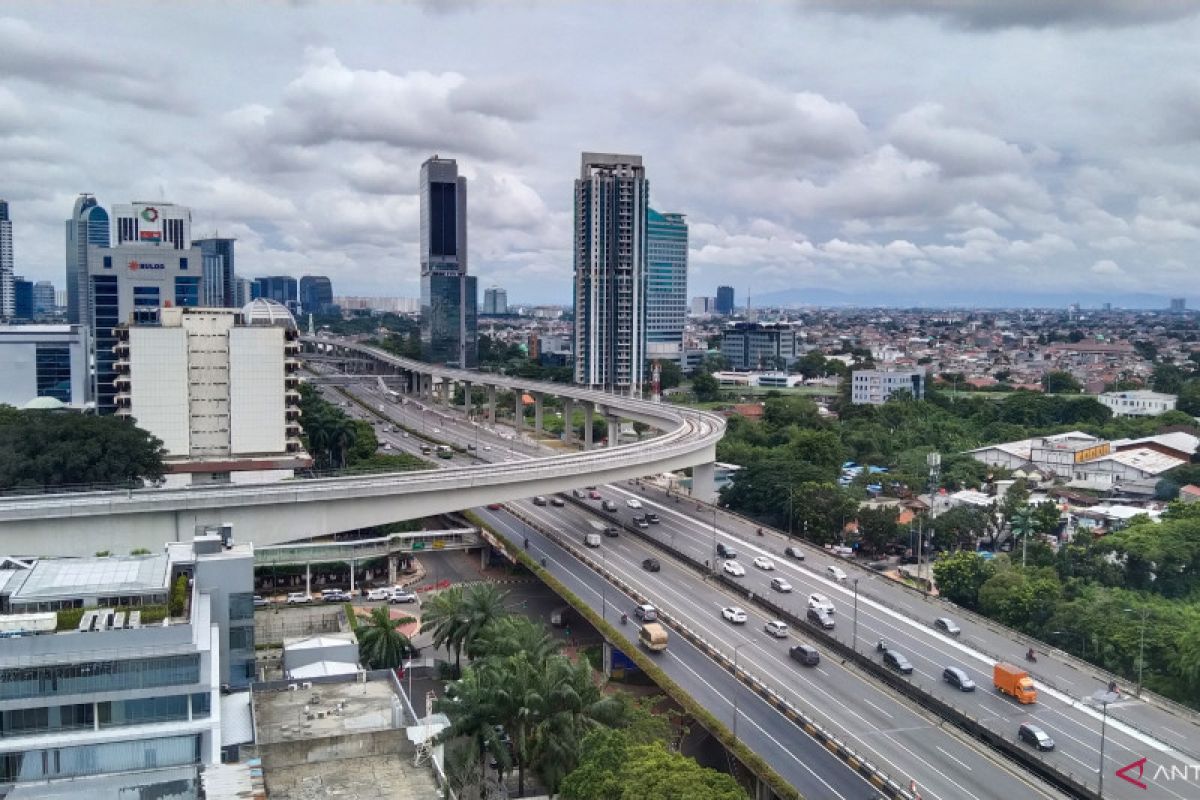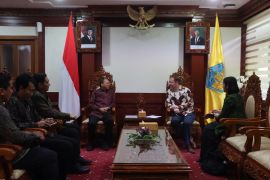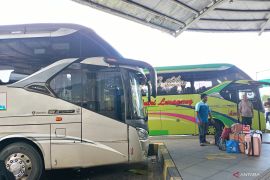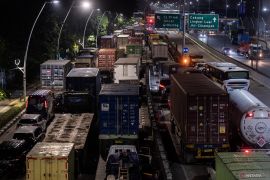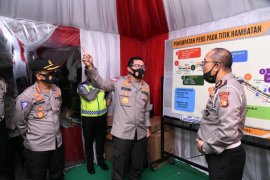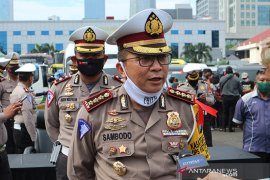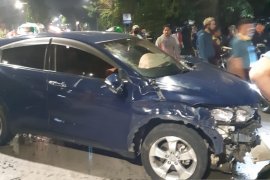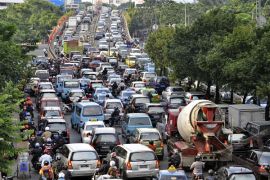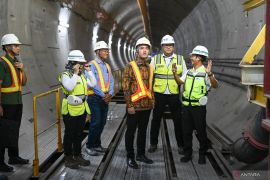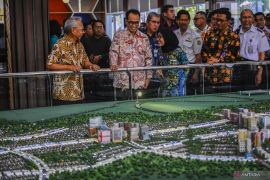ERP is planned to be enforced since other policies, such as the 3-in-1 method, in which only private cars with three or more passengers are allowed to pass several roads, and the odd-even license plate policy, were deemed unable to control the heavy traffic in Jakarta.
According to Head of the Jakarta Transportation Office, Syafrin Liputo, the 3-in-1 and the odd-even policies have not reduced congestion, but rather, increased the number of motorcycles in the capital city.
Based on data from Statistics Indonesia (BPS) in Jakarta, the number of motorcycles in 2020 had reached 16.1 million, increasing from 15.8 million in the previous year.
ERP is not a new way to control traffic congestion, as the system has already been implemented by city administrations or transportation authorities in developed countries to reduce congestion.
This policy has been implemented in London, Stockholm, Milan, and Singapore since 1998.
According to the Singapore Land Transport Authority, in the ERP system, motorists will be charged when passing through the ERP gantry during operating hours.
The fee charged depends on the type of vehicle, so the larger the vehicle, more expensive will be the tariff.
Motorists must install the In-vehicle Unit (IU) device in the vehicle to cross certain roads where ERP gantries are there.
The IU device installation in Singapore is not free. According to onemotoring.lta.gov.sg, the cost of installing an IU permanently in a vehicle is SG$155.80 inclusive of GST, covered by a five-year warranty.
That IU device has a barcode that will be scanned by when crossing a ERP gantry.
The ERP fee will be directly deducted from the balance stored on the electronic money card in the IU.
In addition to direct payment through the IU, motorists can pay the fee via debit card or credit card.
Drafting ERP regulation
The plan to implement ERP in Jakarta has gone through lengthy discussions that began in 2007, marked by the issuance of Gubernatorial Regulation No. 103 of 2007 concerning the Macro Transportation Pattern.
ERP has become a mandate as stated in Regional Regulation No. 5 of 2014 concerning Transportation. Back in 2016, the ERP trial operation was conducted but halted due to a lawsuit filed by a telecommunication firm in 2019.
However, the Jakarta Provincial Government won in an appeal or cassation at the Supreme Court (MA) in February 2021.
Following the victory, the Jakarta Provincial Government prepared a draft regional regulation (Raperda) on Electronic Traffic Control (PL2SE), and now, it has been discussed at the Jakarta Regional Regulation Formation Agency (Bapemperda).
In the regulation draft, the proposed tariff of ERP ranges from Rp5 thousand to Rp19 thousand.
ERP enforcement includes motorcycles, but excludes electric bicycles, yellow plate motorized vehicles, government operational vehicles, and vehicles of the Indonesian Military and National Police (TNI/Polri).
Moreover, the vehicles of diplomatic corps of foreign countries, ambulances, hearses, and fire trucks are excluded from the ERP.
ERP is planned to be operated every day from 5 a.m. to 10 p.m. local time on 25 road sections stretching along 54 kilometers.
The 25 roads include Pintu Besar Selatan, Gajah Mada, Hayam Wuruk, and Majapahit streets.
The others are Medan Merdeka Barat, Thamrin, Sudirman, Sisingamangaraja, Panglima Polim Boulevards, and Fatmawati Blvd., starting from Ketimun 1 junction to TB Simatupang Street junction.
ERP gantries will also charge vehicles crossing through Suryopranoto, Balikpapan, Kyai Caringin, Tomang Raya Streets, and S. Parman Avenue starting from Tomang Raya junction to Gatot Subroto.
Moreover, the ERP system continues at Gatot Subroto, MT Haryono, Rasuna Said, DI Panjaitan, and Jenderal Ahmad Yani streets starting from Bekasi Timur Raya to Perintis Kemerdekaan Street junction.
Lastly, Pramuka, Salemba Raya, Kramat Raya, Senen Station, and Gunung Sahari Roads will be installed with ERPs.
Public transport readiness
The implementation of ERP is expected to influence the public to switch to mass transportation, especially on roads that are subject to the system.
Based on data from the Jakarta Transportation Office, public transportation capacity needs to be increased along with the ERP plan and the increasing public mobility.
For instance, TransJakarta, with a total fleet of 4,700 units, serves 1.2 million passengers per day.
Liputo projected that TransJakarta's fleet capacity will be increased in 2024 to serve 1.5 million passengers with 6,960 bus fleets, and the addition of routes from 13 to 15 BRT (bus rapid transit stop) corridors.
Meanwhile, the Jakarta Mass Rapid Transit (MRT) has a capacity of 173 thousand passengers per day, and in 2024, it is targeted to serve 260 thousand and be supported by the completion of MRT Phase 2A.
Furthermore, the Jakarta Light Rapid Transit (LRT) has a capacity of 18 thousand passengers per day and is integrated with TransJakarta. The integration is targeted to increase the capacity to 145 thousand passengers daily.
In addition, the Greater Jakarta LRT, which is targeted to start operating in July 2023, has a capacity of 730 thousand per day with 18 stations.
Academician from Soegijapranata Catholic University in Semarang, Djoko Setijowarno, believes there are pros and cons to the policy, as it is considered unpopular within specific groups of society.
Those who may be against the policy of using more public transport are because of the comfort of commuting by car as it is more flexible, personal, and prestigious, as well as shows social status, he explained.
Meanwhile, with ERP, people are forced to act rationally by choosing public transportation modes.
For the pros, ERP is a manifestation of concern for the environment.
In addition, it is fitting to implement ERP now, as Jakarta is led by Acting Governor Heru Budi Hartono, who does not have a political burden.
Related news: DPRD's regulation awaited for Jakarta ERP implementation
Related news: Discussion ongoing with central government over ERP tariff in Jakarta
Translator: Dewa W, Kenzu
Editor: Azis Kurmala
Copyright © ANTARA 2023
